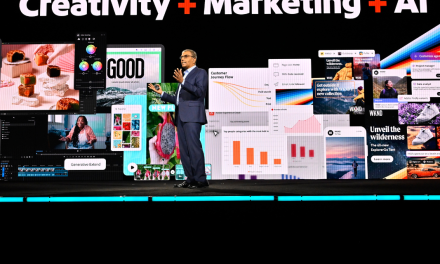E-commerce is poised for strong growth in the region with many markets moving past their inflection points. We are now seeing the proliferation of online marketplaces with more and more consumers preferring to make their purchases digital.
Today’s consumers, who now have access to more information and more marketing channels to turn to, however are becoming more discerning. Many are fatigued from algorithms constantly messaging them and prefer a more customized buying experience. What can brands do to further improve their customer touch points in their e-commerce journey?
To find out more, MartechAsia discusses with Karam Malhotra, Chief Executive Officer at Xtend, on how he sees e-commerce evolving, ways companies and marketers can better target consumers and if AI can eventually replace and replicate the functionality of cookies.
What are the new strategies e-commerce companies are adopting in the current business landscape?
In today’s constantly evolving landscape, it is a business imperative for e-commerce companies to be agile and adaptable to stay resilient and ahead of the curve. Investing in technologies, such as integrating the latest payment processing systems, marketing software and tools that drive business efficiencies, and most importantly leveraging AI to elevate their marketing efforts.
Companies are also looking to ramp up work under data analysis to drive better decision making and create a positive shopping experience for their customers. This could lead them to provide a more user-friendly website, offer competitive prices, or even achieve better product recommendations for each user profile.
Digital marketing has reached a point that many users are experiencing too many ads and losing attention. How can ads be more relatable while still being able to improve conversions for marketers?
One way would be to integrate ads seamlessly within the user experience by utilising native advertising. Native ads blend with the format and design of the platform or content where they appear, making them less intrusive. Intuitively generated images and videos that are more visually appealing and engaging can also be created and incorporated into these native ads through AIGC, making ads more relatable and memorable and thus increasing the likelihood of engagement and conversion
With large amounts of users acquired during the pandemic, Xtend is helping ecommerce companies grow and retain these customers through leveraging the power of AI and AIGC to intuitively and rapidly retarget and engage them.
What do you see as the winning factors for marketing, for instance in the targeting of users or in predicting future consumer behaviour?
Recognising user behaviour across various touchpoints is one key factor in marketing as it provides valuable insights into consumer preferences and interests. Behavioural tracking enables marketers to monitor consumer interactions, understand their engagement levels, and identify potential conversion opportunities. By utilising retargeting strategies, marketers can re-engage users who have shown interest in their products or services, keeping their brand top-of-mind.
Through SHOPit, a platform agnostic plug and play solution, Xtend is able to accurately pinpoint lapses in the user journey and effectively help businesses retarget using unique and customised user scenarios, and AI Generated Content (AIGC) native creations.
Can Xtend share an example of your customers using AI in their user campaigns?
Xtend as an AI-powered Ad-Engine that is built on a large scale AI model, is able to provide an algorithm that predicts based on typical user profiles instead of usual marketing funnels. It allows anticipation of a user’s next preferred engagement with a brand – whether via discovery, product comparisons or a flash deal. This is achieved by converting and leveraging the power of AI and first-party data, and unique user scenarios within our system and offering high-powered support to reach, convert and re-engage users for brands.
We utilise advertising to accurately reach audiences that are not foreign to the brand/platform. This can be existing customers, or users that have signed up but not yet made a purchase, or simply a visitor of the brand website and predict how these unique users will behave.
One example of our partnership is with GoTo. Xtend is currently working with them to grow their first time buyers, activate dormant buyers, and drive users to merchant landing pages by supporting teams at Tokopedia TopAds.

With all this intelligence, what further opportunities would the application of AI in marketing open up? Do you foresee future AI solutions being able to replicate the functionality of cookies without compromising privacy?
Aside from personalization and prediction as mentioned above, AI will be able to help marketers to optimize marketing campaigns for maximum effectiveness through testing different variables, such as the target audience, the message, and the timing of the campaign.
As for the future of cookies, it is likely that they will eventually be replaced by AI-based solutions as a privacy-friendly alternative that can collect data without tracking users’ browsing activity.
What are the downsides of AI in marketing? How best can marketers ensure privacy is protected and that AI is ethically and properly used?
Over reliance on AI in marketing can cause campaigns to lack the human touch that human marketers can provide. While AI algorithms can analyze large amounts of data and make data-driven decisions, they may struggle to understand the emotional and contextual nuances that humans can comprehend, resulting in a less personal and empathetic customer experience.
To ensure ethical usage of AI and data, marketers should uphold privacy regulations to the strictest standards and enforce encryption as well as other security methods to protect user information. Also, marketers can ensure ethical usage by being transparent about how they are using AI by letting people know what data is collected, how it is being used, and how they can opt out.



















